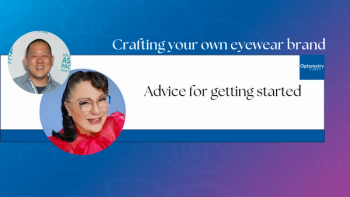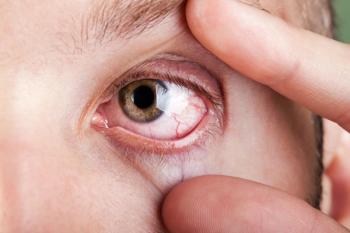
- March digital edition 2023
- Volume 15
- Issue 03
Supporting glaucoma patients beyond the exam room
Empowering individuals to take greater ownership of their visual health.
Some of the most difficult questions I’ve ever been tasked with have been posed by people who were not in the eye care arena. A perfect example is the time I spoke to my niece’s kindergarten class a number of years back. I thought I’d just bring in a light and a prism and dazzle some youngsters for a few minutes. Instead, I spent several sweaty moments trying to answer questions like, “How do we see people we know and know that we know them?” And, “When I look at the sky, I see all different colors; why is that?” I’ve avoided addressing a roomful of children ever since.
Long before the folly of that day, when I was a resident at SUNY, I was asked to go down to the lobby of our building and lead a discussion for a glaucoma support group. It was a small coterie, maybe 10 or 12 people, and to my surprise not all glaucoma patients as I had expected. Instead, they were mostly relatives of glaucoma patients. The session lasted a half an hour or so, and it was—I hope—informational for the participants.
It was decidedly informational for me. Although I didn’t learn anything about glaucoma, I learned a great deal about how much a person’s perception of disease affects their attitude towards it. I recall one woman in particular, who was perhaps in her 50s and whose father had chronic angle closure glaucoma. She was concerned not only about his diagnosis and what it meant for his prognosis, but also about the genetic components of glaucoma and the likelihood that she would also get it as she aged. Full disclosure: I could not answer all her questions at the time. But I did take down her email address and eventually got her the answers she was seeking.
Fast forward to today and the reason why a middle-aged private practice owner like me has deemed it worthwhile to indulge in reminiscences. Simply put, I am considering copying the SUNY College of Optometry and spearheading a glaucoma support group in Augusta, Georgia. I could host in my waiting room. Yes, it’s a tiny space compared with the lobby of an NYC high-rise, but Augusta’s population is not New York’s.
Now, the question I pose is simple: is there a need for this in my area that I could potentially fulfill? The answer is not readily apparent to me yet. There’s the obvious fact that I’m not the only show in town. Maybe other practices or groups are doing this already, and I just don’t know about it. Maybe the internet and its various virtual settings have diminished the need for such a group at the local level.
For me, personally, a discussion is much more lively, tangible, and fruitful when conducted in person. I believe in the grip-and-grin more than in the mute-and-wave. I also believe that there are aspects of clinical care that simply don’t fit inside the confines—physical and temporal—of an exam room.
I try to conclude all my examinations by asking patients whether they have additional questions. When I get a negative response—which tends to be most of the time—I simply say, “Well, if you think of anything you wanted to ask, just call me or stop by, and I’ll make time for you.” It hardly ever happens. Perhaps a handful of times a patient or family member has called with questions about IOP response to medications, surgical options, or a prognosis.
Knowing that questions are floating out there, by facilitating a glaucoma discussion group I may be able to draw some of them out and empower patients to take greater ownership of their condition. Who knows? It may even improve compliance.
I’ll keep you apprised of my progress with this endeavor. Right now, all I can say is that it was one of those ideas we all have during the holiday season, when we try to imagine what we might do differently next year. Are you doing anything like this in your community? Drop me an email and let’s discuss!
Articles in this issue
over 2 years ago
New topical therapies for dry eye diseasealmost 3 years ago
Diagnosing and treating optic nerve head drusenalmost 3 years ago
OCT biomarkers associated with advanced age-related macular degenerationalmost 3 years ago
Educating patients on refractive surgery optionsalmost 3 years ago
My practice journeyalmost 3 years ago
Artificial tear ingredients that mimic the real thingalmost 3 years ago
Management of chronic allergic eye diseasealmost 3 years ago
Breaking into lens techNewsletter
Want more insights like this? Subscribe to Optometry Times and get clinical pearls and practice tips delivered straight to your inbox.













































